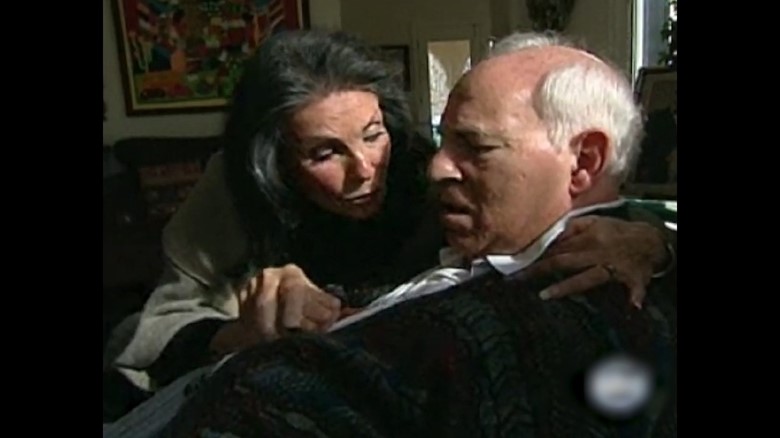Becoming Insular as a Caregiver
Alzheimer's Disease
Transcript
Title: Becoming Insular as a Caregiver
Subject: Meryl Comer
Every family remembers that moment when you’re handed a diagnosis of Alzheimer's disease. In our generation, it was a death sentence, quite frankly. I didn’t tell anyone. I wanted to see what I could preserve of what was left and see how we could manage with what we knew. In fact, we didn’t know a lot. There wasn’t much to tell you back then. It was a neurodegenerative fatal disease, no cure, no hope. And then, the very difficult odyssey began. I wanted to protect my husband. I wanted to protect his dignity. I didn’t want him embarrassed by behaviors that I was beginning to note. And as his mind began to unravel, the slightest frustration and sense of loss of control set him off. So, his demeanor and behaviors day-to-day were unpredictable. You pull a loved one away when the behaviors become inappropriate that you can’t control, where there’s sudden outbursts. You’re trying to protect their dignity. And then, over time you become isolated. I forgot who I was. People talked to me about respite, and I just laughed. I couldn’t have people come in to help me, friends come by, because he was too difficult.
The behaviors keep people away. They frighten people. It’s difficult to explain. They begin to question the caregiver about how they manage things. So, we compound our situation by being silent and keeping the secret. When my family did come, I was always anxious, because I didn’t know what behaviors or something might happen or my husband’s screaming might frighten them. There’s always a conundrum for family and friends who feel in their own way helpless. They don’t know what to do. If your loved one is docile, perhaps a friend can say let me sit with him and let you get out for a moment or two, because you really are the lifeline to the patient.
My women friends, and by the way, I never discussed what was going on in my life in detail with my women friends, because when I was on the phone with them, I wanted to escape into their world. So, when my book came out, they were very upset with me. But they did take me out to breathe. We called it breathing and we would go hiking for a day. But every time I walked out the door, it cost me just to walk out the door. People would have wanted to help. But his situation, condition, was so tentative all the time that I really couldn’t invite someone in to help or thank them. I thanked them for the offer, but I couldn’t take advantage of it.
But I will say to other caregivers if there’s an offer and you can take it, take it. Don’t be so proud that you can do it all alone. This doesn’t get taken care of all alone. You never know how strong you are until being strong is your only choice. Well, that’s the role of the Alzheimer's caregiver. People would say to me you’ve got to be tough to be able to do this. And I would answer I'm not tough, I'm just resilient. You never know what life hands you and I think that’s where the resilience comes from. But just look around and be thankful for what you have.

Comments (0)
Add new comment